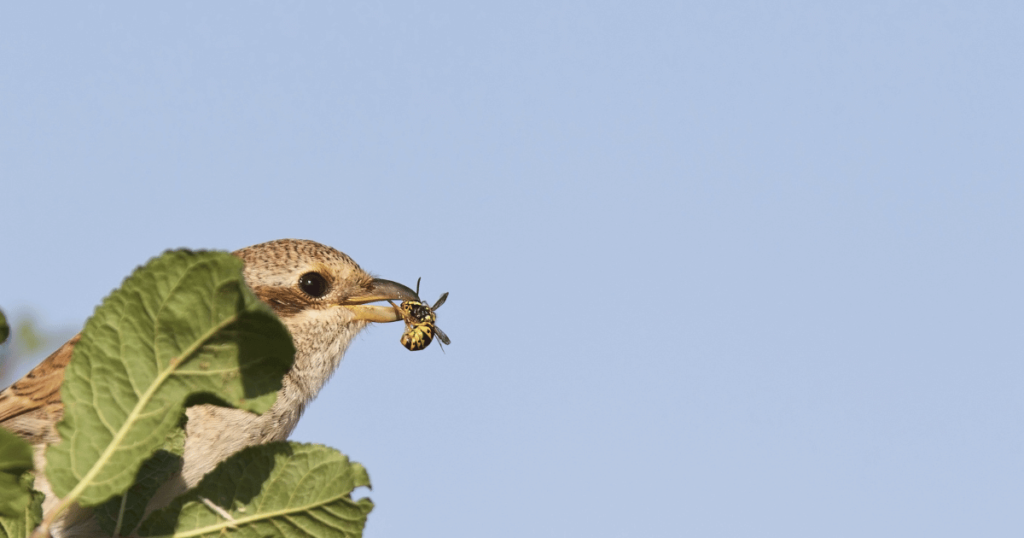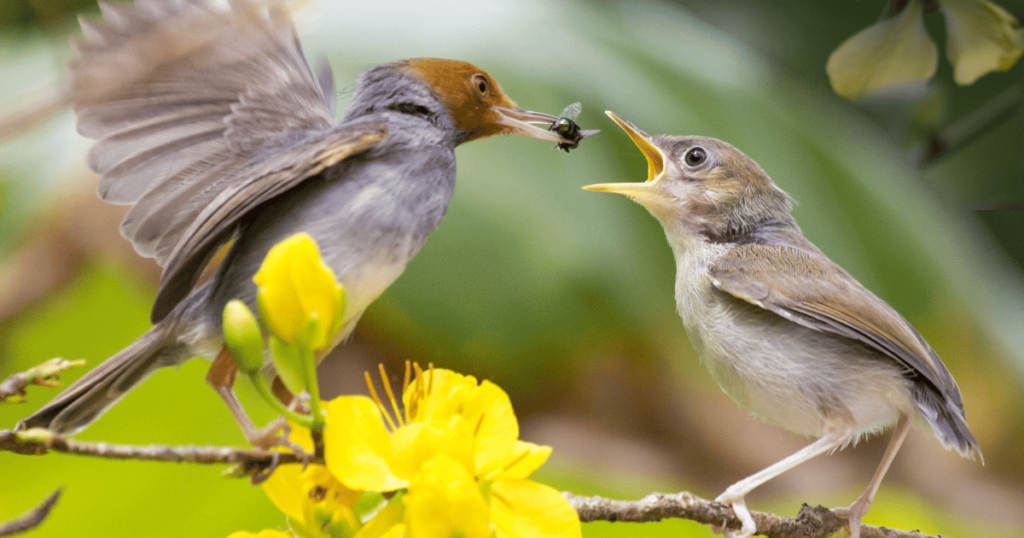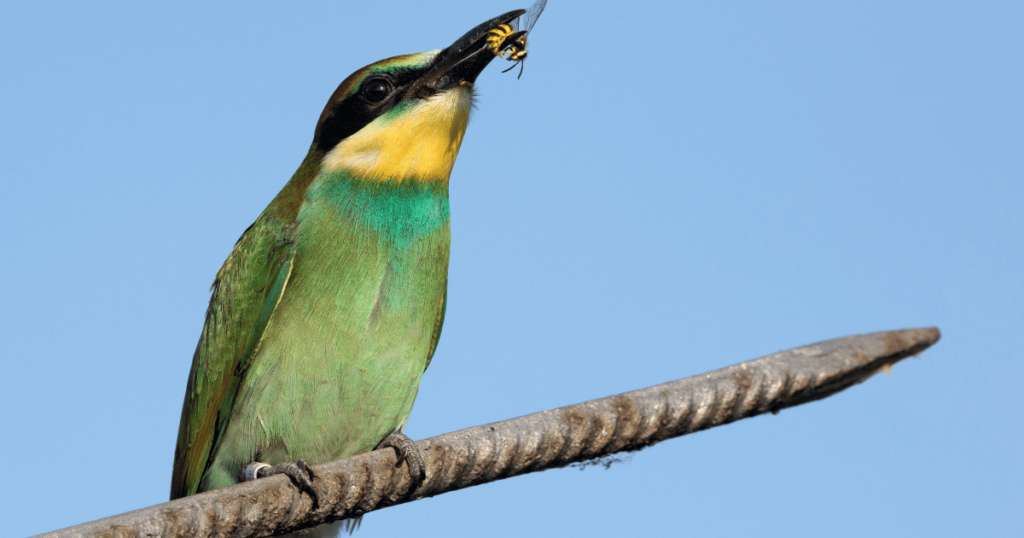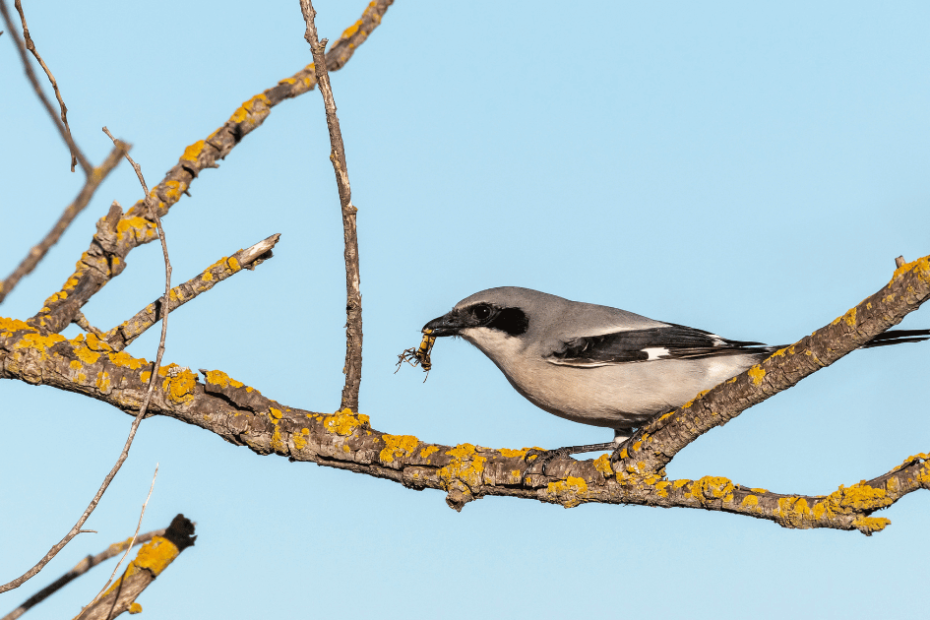Key Takeaways
- Encourage little birds in your garden to naturally control wasp populations and maintain a balanced ecosystem.
- Provide bird-friendly habitats and food sources to attract wasp-eating birds like robins, bluebirds, and warblers.
- Understand the risks birds face when feeding on stinging insects, hornets, and bees, and appreciate the hunting techniques and strategies they employ to avoid wasp stings.
- Recognize the nutritional benefits of wasps and bees in a bird’s diet, contributing to their overall health and well-being.
- By fostering a symbiotic relationship between birds and wasps, bees, hornets, and tanagers, you can support natural wasp control through avian predation.
- Appreciate the importance of sustaining a harmonious coexistence between birds, wasps, and hornets for a thriving and diverse ecosystem.
Introduction
Curious about the dining habits of our avian friends? Join me as we explore the fascinating world of bird behavior and answer the burning question: do tanagers eat wasps? We’ll delve into this intriguing topic, uncovering surprising facts about what birds choose to feast on, consume wasps, and how they go about it. From little birds to tiny birds, these winged creatures have some unexpected dining preferences that might just astound you.
Have you ever wondered if tanagers are actually feasting on wasps? Let’s unravel the mystery of how little birds consume wasps and shed light on the dietary habits of our feathered companions. Get ready to be amazed by nature’s intricate food web, where even tiny wasps play a role in sustaining various bird species. So, are you prepared to discover the truth behind whether or not tanagers indulge in these buzzing insects?
Birds That Relish Wasps as Prey
Bird Species
Several little bird species and tanagers have been observed to prey on wasps. These include magpies, bluebirds, and other small birds.
Birds such as magpies are known to be opportunistic feeders, consuming a wide range of food items including insects like wasps. They are often seen foraging for prey near gardens or open woodlands.
Bluebirds also exhibit predatory behavior towards wasps. Their diet consists mainly of insects, making them likely candidates for targeting adult wasps and their nests.
I’ve personally noticed that smaller bird species tend to be more agile when hunting for insects like wasps due to their size and quick movements.

Wasp Predation Behavior
Birds exhibit strategic approaches in capturing these stinging insects. They often target individual adult wasps rather than attacking the entire nest at once.
Birds use their sharp beaks and nimble movements to catch flying adult wasps mid-air before they return to their nests or while they are out foraging.
In my experience, I’ve observed how certain bird species wait near areas with high insect activity, ready to swoop down and capture unsuspecting wasp prey.
Hunting Techniques Birds Use to Catch Wasps
Visual Detection
Birds have exceptional hunting skills that enable them to catch wasps. They use visual detection to spot the wasps in flight or while they are foraging for food. This allows birds to swiftly locate and follow the movements of the wasps, making short work of catching them.
Birds like the European Bee-eater demonstrate remarkable visual acuity when hunting wasps. These birds can spot small insects from a considerable distance, allowing them to track and capture flying wasps with impressive precision. Their keen eyesight gives them an advantage in quickly locating their prey.
Aerial Pursuit
Once a bird has detected a wasp, it engages in an aerial pursuit using its agility and speed to catch the swift-flying insects. The bird may perform intricate maneuvers mid-air as it chases the evasive prey, showcasing its exceptional hunting skills during this intense pursuit.
The agile movements of species such as swallows and flycatchers exemplify how birds utilize aerial pursuit techniques when capturing wasps. These birds showcase their remarkable ability to navigate through complex flight patterns, demonstrating their prowess in outmaneuvering and catching elusive flying insects.
Personal Experience
When I observed a swallow darting through the air with incredible speed and precision, I realized just how adept these birds are at hunting down fast-moving prey like wasps. It’s fascinating how they effortlessly maneuver through various obstacles while chasing their target, showcasing their impeccable hunting skills.
The Symbiotic Relationship Between Birds and Wasps
Do Birds Eat Wasps?
Yes, birds do eat wasps. While not all bird species consume wasps, many birds have been observed preying on these insects. For example, the European bee-eater is known for its diet of bees and wasps. Some species of flycatchers are adept at catching flying insects like wasps in mid-air.
Birds often target wasps to feed themselves or their young due to the high protein content found in these insects. This behavior is especially prevalent during the breeding season when parent birds need ample food to nourish their offspring.

The Nature of Their Relationship
The relationship between birds and wasps can be described as a form of natural pest control. By consuming wasps, birds help regulate their population and prevent them from becoming overly abundant. In turn, this benefits other organisms within the ecosystem by reducing potential harm caused by an unchecked increase in the number of wasps.
This symbiotic relationship showcases how different organisms in nature interact with each other to maintain balance within their environment. It also highlights the adaptive abilities that both birds and wasps possess to survive and thrive alongside one another.
Behavior and Adaptation
The ability of certain bird species to catch flying insects like wasps demonstrates their specialized hunting techniques. These behaviors include agile flight patterns, quick reflexes, and precise targeting mechanisms that enable them to capture fast-moving prey such as flying stinging insects.
On the other hand, some types of wasps have evolved defensive measures against bird predation through nest construction or chemical deterrents present in their bodies.
Risks Birds Face When Feeding on Wasps
Potential Dangers
Birds that feed on wasps face potential dangers due to the risk of getting stung. The sharp stingers of wasps can cause harm to birds, especially if they are targeted in sensitive areas such as the eyes or throat. This poses a significant threat to the well-being of the birds.
Some species of wasps have venom that can be toxic to birds. Ingesting these toxic substances can lead to adverse effects on their health and overall survival. Therefore, there is a real risk involved for birds when they choose to consume wasps as part of their diet.
Birds may develop specific strategies such as targeting less dangerous parts of the wasp’s body during feeding or even avoiding certain species altogether.
Impact on Foraging Behavior
The presence of wasps in an area may affect the foraging behavior of birds, leading them to alter their feeding patterns and locations. Birds might become more cautious and vigilant when searching for food in areas where they know wasps are abundant.
Moreover, the need to avoid potential confrontations with aggressive wasps could force birds into seeking alternative food sources or adapting new hunting techniques. This alteration in foraging behavior has implications not only for individual bird survival but also potentially affects ecosystem dynamics.
In my experience observing nature, I’ve noticed how certain bird species tend to avoid areas with high wasp activity while others seem adept at navigating around them without much trouble.
Encouraging Wasp-Eating Birds in Your Garden
Creating Bird-Friendly Environment
Attracting birds that consume wasps can be achieved by creating a bird-friendly environment in your yard. This involves planting native flowers and shrubs, providing nesting boxes, and offering food sources such as insects. By incorporating these elements into your garden, you can encourage the presence of beneficial birds like house wrens and common starlings.
Creating a diverse landscape with an abundance of plants not only enhances the visual appeal of your yard but also serves as an attractive habitat for various bird species. Native flowers such as coneflowers, sunflowers, and black-eyed Susans are excellent choices to attract birds that feed on wasps. Installing birdhouses or nesting boxes provides shelter for these avian visitors while they help control the wasp problem.
Providing Nesting Sites
Offering suitable nesting sites is crucial in attracting birds that prey on wasps. House wrens are known for their insect-eating habits and can be enticed to nest in your yard by placing small houses or hollow gourds around the property. These structures mimic natural cavities where house wrens typically build their nests.
Moreover, common starlings are cavity-nesting birds that readily adapt to man-made nest boxes when natural sites are scarce. By strategically placing these artificial nesting spaces throughout your garden or yard, you provide opportunities for starlings to establish colonies near areas affected by high wasp activity.

Personal Insights
I’ve found that integrating a variety of flowering plants like lavender and sage not only beautifies my garden but also attracts different bird species due to the abundant insect life sustained by these plants.
Nutritional Benefits of Wasps in a Bird’s Diet
Protein Content
Birds eat wasps because they provide essential protein content, which is crucial for their growth and development. Wasps are rich in protein, making them an ideal food source for birds, especially during the breeding season when they require additional nutrients to nourish their young. The high protein content in wasps helps birds build and repair tissues, produce hormones and enzymes, and support healthy immune function.
Birds such as robins, bluebirds, and wrens actively seek out wasps to feed on due to the high protein content that these insects offer. For example, Eastern Bluebirds are known to consume large quantities of insects including wasps during the nesting season when they need extra nutrition for raising their chicks. This highlights the significance of protein-rich foods like wasps in supporting avian health and reproduction.
Other Nutrients
In addition to being a valuable source of protein, wasps also contain other important nutrients such as fats, vitamins, and minerals. These nutrients contribute to the overall health and well-being of birds by providing energy, promoting proper metabolic function, supporting feather quality, and enhancing reproductive success.
Apart from protein, it’s important for birds’ diets to be varied so that they can obtain different types of essential nutrients from various sources. By consuming a diverse range of insects including wasps along with seeds or fruits depending on their species-specific dietary needs allows them to acquire a wide array of vital nutrients necessary for survival.
I’ve found that understanding why birds eat certain insects like wasp can help me appreciate how nature works together harmoniously. It’s fascinating how each creature plays a role in maintaining balance within ecosystems by fulfilling specific nutritional needs through natural behaviors like feeding on other organisms.
Bird Strategies to Avoid Wasp Stings
Understanding Wasp Behavior
Birds have evolved various strategies to avoid being stung by wasps while hunting for them. They know that wasps are equipped with powerful stingers, and being stung can be painful or even deadly. Birds understand the behavior of wasps, such as their nesting patterns and preferred locations, allowing them to minimize the risk of getting stung.
Understanding where wasp nests are located is crucial for birds when hunting for these insects. For example, some bird species like woodpeckers have learned to identify hollow trees or wooden structures where wasps tend to build their nests. This knowledge helps them avoid potential encounters with aggressive wasps.
Swift Hunting Techniques
Birds employ swift and precise techniques when capturing wasps, reducing the chances of retaliation from the targeted prey. By swiftly striking at a specific angle or part of the insect’s body, birds aim to disable or kill the wasp before it has a chance to sting back in defense.
When hunting for wasps, some bird species use tactics like stealthy approaches and sudden attacks from behind or above. These quick movements catch the unsuspecting insects off guard, preventing them from effectively using their stingers against the agile avian predators.
Personal Insights
I’ve always found it fascinating how certain bird species exhibit remarkable agility and precision when targeting potentially dangerous prey like wasps. It’s intriguing how they seem to possess an innate understanding of these insects’ behaviors and vulnerabilities.
Natural Wasp Control Through Avian Predation
Natural Pest Control
Birds play a crucial role in natural pest control, including preying on wasps. They help to keep the population of various insects, including wasps, under control. This natural solution reduces the need for chemical pesticides, promoting a healthier environment.
Birds are effective at controlling pests due to their keen eyesight and agility in the air. They can spot and catch flying insects like wasps with precision, contributing to a balanced ecosystem.
Air Superiority
The air superiority of birds gives them an advantage in hunting down flying pests like wasps. Their ability to soar high above and swiftly dive down allows them to target and capture these pesky insects effectively.
Birds such as swallows are known for their remarkable aerial abilities, making them adept at catching flying insects mid-air. Their swift maneuvers make them efficient predators of airborne pests like wasps.
The personal information I have found helpful is that attracting certain bird species can be beneficial for controlling specific types of pests around my home or garden. For instance, setting up bird feeders or birdbaths may attract insect-eating birds that can help reduce the presence of unwanted pests naturally.
Maintaining a Balanced Ecosystem with Bird Predators
Importance of Bird Predators
Birds play a crucial role in maintaining a balanced ecosystem by preying on wasps and other insects. Their predatory behavior helps control the population of these pests, preventing them from overwhelming their environment. In forested areas, birds such as tanagers are known for their keen ability to hunt down wasps, contributing to the overall health and stability of the ecosystem.
Birds’ survival instincts drive them to seek out food sources that provide essential nutrients for their well-being. By consuming wasps, they obtain protein and energy necessary for sustaining themselves and raising their young. This natural form of pest control not only benefits bird populations but also protects trees and plants from excessive damage caused by unchecked insect infestations.
Characteristics of Avian Predation
The unique characteristics of certain bird species make them particularly adept at hunting wasps. For example, birds with sharp beaks can easily pierce through the tough exoskeletons of wasps, allowing them to consume these insects without difficulty. Birds with exceptional vision can pinpoint wasp nests hidden among tree branches or within foliage.
In my personal experience observing nature, I’ve noticed how various bird species exhibit distinct hunting behaviors when targeting wasps. Some birds may hover near a nest while others swiftly dart in and out to snatch individual wasps mid-flight. These observations highlight the diverse strategies employed by avian predators as they fulfill their vital role in controlling insect populations.
Providing Shelter for Avian Predators
Creating an environment that encourages avian predators is beneficial for maintaining a healthy balance within ecosystems. Planting native trees and shrubs provides shelter and nesting sites for birds that prey on wasps. Offering fresh water sources like birdbaths or small ponds attracts these helpful predators to residential areas where human intervention might be necessary for pest management.
Closing Thoughts
After delving into the world of birds and their relationship with wasps, it’s clear that these winged creatures play a vital role in maintaining a balanced ecosystem. From their hunting techniques to the nutritional benefits derived from consuming wasps, birds are nature’s efficient pest controllers. Encouraging the presence of wasp-eating birds in your garden not only aids in natural pest control but also contributes to the overall health of the environment. By understanding and supporting these avian predators, we can foster a harmonious coexistence between different species, creating a thriving ecosystem where each organism plays a crucial part.
So, let’s take a moment to appreciate the remarkable work our feathered friends do in keeping nature in balance. Consider incorporating bird-friendly elements into your outdoor space and spread awareness about the significance of avian predators in our surroundings. Together, we can make a meaningful difference in preserving the delicate harmony of our natural world.
Frequently Asked Questions
Do birds eat wasps?
Yes, many bird species include wasps in their diet. They are a good source of protein and nutrients for birds.
How do birds catch wasps?
Birds use various hunting techniques to catch wasps, such as aerial pursuit, stealthy approaches, or even knocking them down from nests.
What benefits do wasps provide to birds?
Wasps offer nutritional benefits to birds by providing essential proteins and fats that aid in their growth and development.
Are there risks for birds when feeding on wasps?
There are risks involved for the birds when feeding on wasps, primarily related to potential stings and other defensive mechanisms employed by the insects.
How can we encourage more bird predation of wasp populations in our garden?
Creating a welcoming environment for insect-eating bird species with suitable habitats and food sources can help increase avian predation of local wasp populations.
